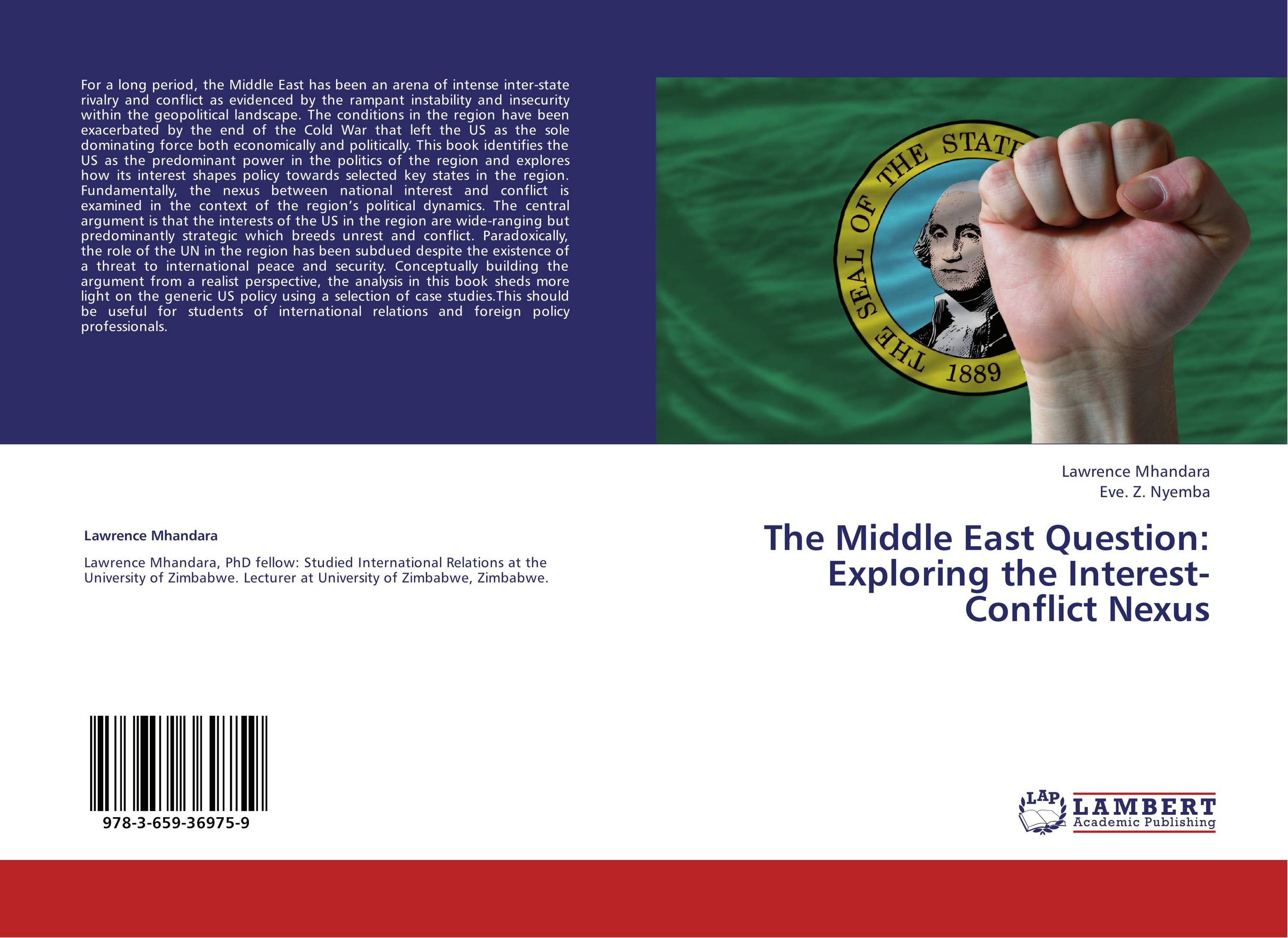| Поиск по каталогу |
|
(строгое соответствие)
|
- Профессиональная
- Научно-популярная
- Художественная
- Публицистика
- Детская
- Искусство
- Хобби, семья, дом
- Спорт
- Путеводители
- Блокноты, тетради, открытки
The Middle East Question: Exploring the Interest-Conflict Nexus.

В наличии
| Местонахождение: Алматы | Состояние экземпляра: новый |

Бумажная
версия
версия
Автор: Lawrence Mhandara and Eve. Z. Nyemba
ISBN: 9783659369759
Год издания: 2013
Формат книги: 60×90/16 (145×215 мм)
Количество страниц: 96
Издательство: LAP LAMBERT Academic Publishing
Цена: 31069 тг
Положить в корзину
| Способы доставки в город Алматы * комплектация (срок до отгрузки) не более 2 рабочих дней |
| Самовывоз из города Алматы (пункты самовывоза партнёра CDEK) |
| Курьерская доставка CDEK из города Москва |
| Доставка Почтой России из города Москва |
Аннотация: For a long period, the Middle East has been an arena of intense inter-state rivalry and conflict as evidenced by the rampant instability and insecurity within the geopolitical landscape. The conditions in the region have been exacerbated by the end of the Cold War that left the US as the sole dominating force both economically and politically. This book identifies the US as the predominant power in the politics of the region and explores how its interest shapes policy towards selected key states in the region. Fundamentally, the nexus between national interest and conflict is examined in the context of the region’s political dynamics. The central argument is that the interests of the US in the region are wide-ranging but predominantly strategic which breeds unrest and conflict. Paradoxically, the role of the UN in the region has been subdued despite the existence of a threat to international peace and security. Conceptually building the argument from a realist perspective, the analysis in this book sheds more light on the generic US policy using a selection of case studies.This should be useful for students of international relations and foreign policy professionals.
Ключевые слова: Iraq, US policy, Iran and Israel, Middle East Instability



